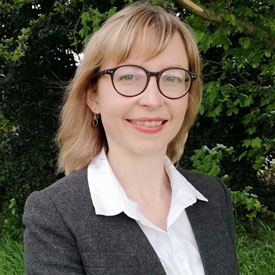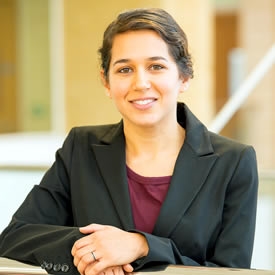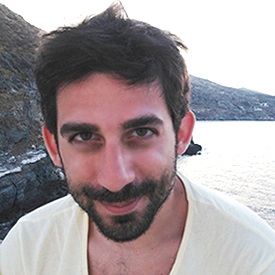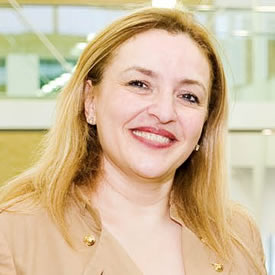As the most research-intensive business school in the UK, according to the latest Research Excellence Framework, there really is no better place to gain a deeper insight into economics.
In our quadruple-accredited, world-ranked Management School, you can benefit from excellent academic supervision, interact with respected economists and be part of a thriving research community of staff and students. We aim to prepare you for a successful research-driven career in academia, government, research organisations, or business.
About the department
Our main specialisms are Behavioural and Experimental Economics; Labour, Education and Health Economics; Macroeconomics and Financial Markets; Political Economy and International Trade, and Industrial Organisation and Economic Theory. We also host LExEL (a modern experimental lab) and the UK Housing Market Observatory. Please read our research and supervisor pages to match your research interests with those of available supervisors.
As well as a traditional four-year PhD programme, we also offer an integrated PhD of a one-year Master's followed by four years of doctoral study. Management School and Economic and Social Research Council scholarships are available.
As a student in our department, you will have access to advanced research training courses delivered by us and the ESRC-funded North West Social Science Doctoral Training Partnership (NWSSDTP). These courses are continually updated to remain at the forefront of research.
You will benefit from close research supervision and feel an active member of the department’s research environment by attending a vibrant weekly seminar series, research workshops and conferences. You will also have access to state-of-the-art databases, dedicated office space, scientific computing facilities and IT support. In addition to your thesis, an oral examination will form an integral part of the assessment of your doctoral research.
Programme structure
This is a four-year programme. The first year includes a range of advanced modules, which are delivered by the Department or by our ESRC NWSSDTP partners at the Universities of Manchester and Liverpool.
The final three years of the PhD programme are dedicated to full-time research for the completion of the doctoral thesis. Upon completion of the programme, you should have a thorough understanding of economic theory and its applications, as well as an ability to think critically about, and apply quantitative methods to, economic problems.
Typical PhD modules
- Research Skills for Economists
- Microeconometrics
- Applied Macroeconomics
- Microeconomics
After completing the taught component of the programme, those students who perform well and pass qualifying coursework and examinations proceed to develop a substantive research proposal (ECON880) under the guidance of their supervisory team. The research proposal is essentially a preliminary draft of the student’s first research paper, which builds upon the advanced research training undertaken throughout the year (especially the Research Skills module). Students defend their research proposal in an upgrade/confirmation panel that takes place in September.
Research focus
During your final three years, you will focus almost entirely on research and work on your research papers/chapters. You will be encouraged and financially supported to present your work in seminars, conferences and workshops to obtain feedback, interact with other researchers and establish research networks. If deemed beneficial by the supervisory team, you can also participate in NWSSDTP Economics modules, which you didn't take in the first year, and attend courses, masterclasses and workshops outside the NWSSDTP Economics pathway.
In your final year, you will be expected to complete your main research paper, the job market paper, and start preparing for the following year’s job market. The Department supports you during this stage through introductory talks, mock interviews and job market presentations.
Research activities
Departmental seminars, workshops and conferences
The Department runs three weekly seminar series: an internal, a PhD, and an external. These seminar series provide an invaluable opportunity for PhD students to be exposed to cutting-edge research in their field, present their work and obtain feedback. The Department also organises conferences and workshops that PhD students are invited to attend. Visit our events for more information.
NWSSDTP PhD Conference in Economics
Every year in May, the Departments of Economics of the Universities of Lancaster, Liverpool and Manchester organise the NWSSDTP PhD Conference in Economics. This two-day event consists of keynote speeches by prominent economists, presentations from PhD students from the three institutions, and a conference dinner. Past keynote speakers include Professor Jeffrey Wooldridge from Michigan State University, Professor Daniel S. Hamersmesh from the University of Texas at Austin, Professor Rachel Griffith from the University of Manchester, and Professor Ed Karni from Johns Hopkins.
NWSSDTP Summer School in Economics
The NWSSDTP Summer School is an intensive, one-week event that consists of a series of lectures and seminars/labs taught by world-leading academics. It provides an excellent opportunity for PhD students to further enhance their skills and knowledge in a specific area of economics/econometrics, and it facilitates interactions across PhD students, faculty and course lecturers.
Research partnerships
The Department has strong links with non-Higher Education Institutions (HEI) and several of our PhD students have worked on research projects in collaboration with these organisations. Below is a list of our non-HEI partners together with current and past PhD projects.
- Department of Work and Pensions, “Child Support and Separation: Effects on Parents and Children”
- Bank of England, “Housing Markets and the Macroeconomy”
- Gambling Commission, “Understanding Gambling”
- Department of Business Innovation and Skills, “Drivers of Efficiency in Higher Education”
- Office of Manpower, Economics “Labour Supply and Incentives in the Medical Profession”
- RAND Europe, “Alcohol, Habits and Prices”
- Department of Business Innovation and Skills, “The Returns to Higher Education: Some Further Analysis”
- The Work Foundation, “Transitions from Schools and Youth Unemployment”
Research training seminars
There are two compulsory seminars in the first term, which include an online test:
- Plagiarism
- Ethics and Research






















